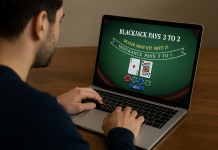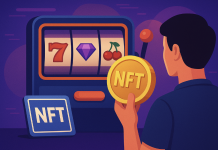Single-Deck vs. Multi-Deck Blackjack: Which One Gives You the Best Odds?
Which is better? Single or multi-deck blackjack? Blackjack is one of the most popular and trusted games in any casino, and for good reason. Unlike many other table games, blackjack offers a chance to use real strategy, manage your decisions, and influence the outcome. That’s why seasoned players tend to ask the same key question: Does it really matter how many decks are used in the game?
The answer is yes. The number of decks in play has a direct impact on your odds, the house edge, and even how your basic strategy plays out. Whether you are playing real money blackjack online or in a brick-and-mortar casino, knowing the difference between single-deck and multi-deck blackjack can help you make smarter decisions and stretch your bankroll farther.
Let’s explore how deck count affects the game, and which version offers the better shot at beating the dealer.
The Basics of Single-Deck Blackjack
As the name suggests, single-deck blackjack uses just one standard 52-card deck. This was the original format of the game and is still offered in some casinos today, particularly in online platforms and high-limit areas.
The appeal of single-deck blackjack is simple: the odds are better for the player. With fewer cards in play, you can more accurately track what remains in the deck, and the probability of certain outcomes—like drawing a ten or catching a blackjack—becomes easier to gauge.
For example, when only one deck is used, your chances of being dealt a blackjack improve slightly. More importantly, the house edge drops, often sitting around 0.15 to 0.17 percent with standard rules and proper strategy. That is one of the lowest house edges in the entire casino.
However, there is a tradeoff. Many casinos adjust the rules of single-deck games to offset this player advantage. They might reduce the payout for a blackjack from 3:2 to 6:5 or limit doubling and splitting options. These changes may seem small, but they can quickly wipe out the benefit of the single deck.
What Changes in Multi-Deck Blackjack?

Multi-deck blackjack can involve four, six, or eight decks shuffled together and played from a shoe. These versions are more common, especially in live and online casinos. They are faster for dealers to manage, harder for players to track, and make the art of card counting much more difficult.
From the casino’s point of view, multi-deck games offer greater protection and smoother gameplay. From the player’s point of view, they present a few extra challenges.
The biggest change is the increase in house edge. With more decks in play, your odds of hitting a blackjack decrease, and your ability to estimate card distribution becomes much less reliable. A typical six-deck game has a house edge around 0.5 percent, which is still reasonable but noticeably higher than a well-ruled single-deck version.
Multi-deck games also impact your strategy. While the basic principles of blackjack stay the same, there are subtle differences in decision-making depending on how many decks are being used. For example, when to double down, split pairs, or hit on a soft hand can vary slightly in multi-deck play compared to single-deck scenarios.
House Edge by Deck Count: The Numbers
To really understand the difference, here’s a simple breakdown of house edge across different deck counts (assuming standard rules and optimal strategy):
- Single-deck: 0.15 percent
- Double-deck: 0.35 percent
- Four decks: 0.45 percent
- Six decks: 0.50 percent
- Eight decks: 0.65 percent
These numbers show how even a few extra decks can increase the casino’s advantage. While the jump from single to double-deck might not seem too severe, by the time you hit six or eight decks, the house edge has more than tripled.
Keep in mind that rule variations can override deck count. A single-deck game with a 6:5 blackjack payout can end up with a higher house edge than a six-deck game that pays 3:2 and allows liberal doubling rules. Always check the rules before sitting down to play.
What About Strategy?
Whether you are playing single or multi-deck blackjack, basic strategy remains the foundation of successful play. That means hitting, standing, splitting, or doubling based on your hand and the dealer’s upcard. But here’s the catch—optimal strategy changes slightly depending on how many decks are in play.
For example, in single-deck blackjack, you are more likely to double down on certain hands, like a hard 11 or a soft 18. You may also be more inclined to stand on a hard 16 if the dealer is showing a low card. These small adjustments can have a noticeable impact on your long-term results.
Fortunately, there are basic strategy charts and blackjack cheat sheets specifically designed for single-deck, double-deck, and multi-deck games. Using the right chart for the game you are playing is key. Many online casinos and apps provide this guidance, so take advantage of it before jumping into a game.
Is Single-Deck Always Better?
It is tempting to say yes, but that is not always the case.
While the math clearly shows that single-deck games offer the best raw odds, you must look at the full picture. Many single-deck games apply tougher rules or less favorable payouts to cancel out the player’s edge. If you find a game with 6:5 payouts, no double after split, and restricted options, those advantages quickly disappear.
In contrast, multi-deck games often have more generous rules and larger betting limits, which may appeal to different types of players. They also tend to offer a more fast-paced and varied experience, especially in live dealer formats.
In the end, the best odds come from a game that balances low house edge with player-friendly rules—regardless of deck count.
Final Thoughts: Picking the Right Game for You
If you are serious about playing blackjack for the long run, understanding how deck count impacts your odds is essential. Single-deck games give you the best mathematical chance to win, but only if the rules are favorable. Multi-deck games may not offer the same edge, but they are widely available, more flexible, and still beat most other casino games in terms of player odds.
At Planet 7, we offer both styles so you can choose the game that fits your comfort level and strategy. Whether you want the stripped-down precision of a single-deck table or the lively action of a multi-deck experience, you will find a seat that suits your play style.
Just remember—every hand is a new opportunity, and the best edge you can bring to the table is knowledge.




